Simon Collins
‘That’s 6 in a row. #Melbourne is, once again, the world’s most liveable city!’ So tweeted a proud Daniel Andrews in August 2016, halfway through his first Premiership term. The following year, notwithstanding its cavalier attitude to seasons and rugby, the jewel in Victoria’s crown retained its leadership of The Economist Intelligence Unit’s aggregated ranking of urban healthcare, education, environment and infrastructure, and in 2018 and 2019 was only pipped at the post by Vienna, a metropolis previously notable mainly for its schnitzels and Nazi sympathisers. This public two-town tussle doubtless exacerbated the difficulty some foreigners have always had distinguishing Australia from its northern hemisphere near-homonym, and explains the disappointment of American tourists, in particular, at not seeing kangaroos bouncing around the Tyrol or aborigines playing flugelhorns.
Plenty of data can be mined from what’s left of 2020, of course, but even if Mr Andrews’ government performs the most spectacular volte-face on Covid-19 tomorrow, you’d have to be a very optimistic Melburnian to think the city has a better chance than, say, Kabul or Beirut of making even The Economist’s top ten this year. But when one door slams in your face another one sometimes creaks open, and Mr Andrews may take consolation from the fact that in one critical respect Melbourne is still a world leader: In the last century only Sarajevo and what used to be Leningrad have experienced longer lockdowns, and if things don’t improve by Christmas even Troy’s record may start looking shaky. Meanwhile, thanks to the support many Melburnians continue to give their cherubic leader, and their craven compliance with ever more draconian restrictions, the city might soon be able to claim naming rights for something else which until now was considered a largely European phenomenon, and psychologists will start talking about Melbourne Mentality rather than Stockholm Syndrome.
Another possible explanation for Victorians’ willingness to be imprisoned in their homes and post codes is that it will boost their victimhood credentials. When I arrived in Australia in the Eighties the cultural cringe was still so involuntary that many Victorians were quick to tell you that their state, unlike its unsophisticated northern and southern neighbours, had never been a penal colony. As a consequence of which, they would say, with much the same confidence that Chinese and Iranian leaders used to deny the existence of homosexuals within their borders, nobody you would meet during your stay could possibly be of convict stock.
More recently, of course, having convict genes has become a valuable social asset. Being the descendant of someone brought here against their will and in chains is much less shameful, after all, than being the descendant of his or her gaolers, who were, by contrast, willing participants in the invasion of the continent and, ergo, the dispossession and massacre of its original population. Unfortunately, early administrators were meticulous record keepers, so it’s not easy for the white woke to fake felon forebears. Records of indigenous births and deaths in the first hundred years of settlement, on the other hand, were less than thorough, and that might explain why suspiciously pale Australians were claiming Aboriginal and Torres Strait Islander lineage long before white US Democratic politicians started claiming Amerindian ancestry, and long before white US academics started passing themselves off as descendants of slaves.
But genealogy, like gender fluidity, climate change and the relocation of the AFL Grand Final, will be the least of Victoria’s worries if Mr Andrews continues to ignore Scott Morrison’s warning that ‘Not everybody needs to get on the bus for the bus to leave the station’. And while the Prime Minister’s meaning is pretty clear, his metaphor is not entirely fit for purpose. Because it implies that by choosing not to get on that bus, Victoria will be maintaining some sort of status quo. Whereas in fact, as is abundantly clear to almost every other Australian, it is already moving, quite quickly, and in a very different direction. To put it more bluntly, the Andrews government’s response to Covid may well have started as a Road to Recovery, but is now looking more and more like a Highway to Hell.
William Poulos
In the 1930s, Kleenex marketed its tissues as replacements for handkerchiefs with the slogan Don’t Carry a Cold in Your Pocket. Australian state governments want you to carry a cold on your face. NSW Transport is now giving robotic commands over loudspeakers: wear a mask on public transport. They remind me of lines from W.H. Auden’s The Shield of Achilles, which so vividly describe how governments exploit technology to quash the human soul: ‘Out of the air a voice without a face / proved by statistics that some cause was just’.
The NSW government can’t even do that: instead of statistics, it directs you to a website for more information. Clearly, I’m the first person to have actually read it — it argues against the use of masks. On NSW Health’s website a fact sheet, ‘Are cloth face masks likely to provide protection against Covid-19?’, states ‘there is limited, indirect, experimental evidence that certain types of cloth mask can reduce transmission of respiratory droplets’ and that ‘in 2013 a review of the use of cloth masks for infection control [concluded]some cloth masks may reduce transmission of respiratory aerosols, but their efficacy is unproven…’. It includes a 2015 UNSW study which ‘found that cloth mask wearers had higher rates of infection than even the standard practice control group of health workers’ because they ‘may become damp and contaminated’. In other words, people were wearing soggy handkerchiefs on their faces. While telling us to wear masks, NSW Health’s fact sheet says there’s little evidence they work. Another NSW government website reports on the Spanish Flu in 1919 and concludes ‘any good results which can be shown to have accrued from land quarantine or restrictions upon travelling… were very meagre’ and admits ‘the evidence either for or against the value of masking is exceedingly difficult to obtain.’
I asked NSW Health why it tells people that masks prevent the spread of infections while its own evidence questions that conclusion. The answer was silence, which didn’t surprise me. The imposition of masks has no medical goal but a political one: silencing all disagreement. The cloth mask is a light blue full stop on the mouths of dissenters. The face is the medium of social interaction: for good reason, humans are suspicious of those who hide their faces. Phrases like ‘show your face’, and ‘face-to-face’ are common. To impose a mask is to impose conformity. Auden describes this abject submission: ‘A million eyes, a million boots in line / without expression, waiting for a sign’. Change ‘boots’ to ‘masks’ and you have modern Australians: obedient, domesticated animals waiting for their masters to let them speak and breathe freely.
Does NSW Health read its own website? Or is it so confident in its power and the impotence of the press that it thinks it can recommend policies without evidence? And if our lawmakers don’t believe and can’t support what they say, why should you? In case their propaganda gets up your nose and makes you sneeze, keep your hanky where it belongs: in your pocket.
Got something to add? Join the discussion and comment below.
Get 10 issues for just $10
Subscribe to The Spectator Australia today for the next 10 magazine issues, plus full online access, for just $10.
You might disagree with half of it, but you’ll enjoy reading all of it. Try your first month for free, then just $2 a week for the remainder of your first year.

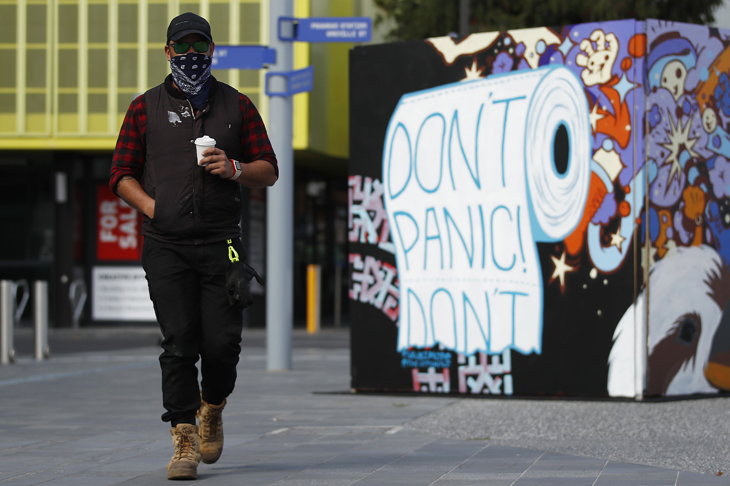
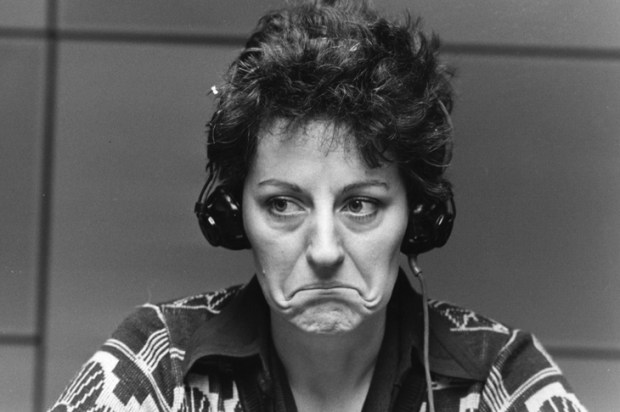
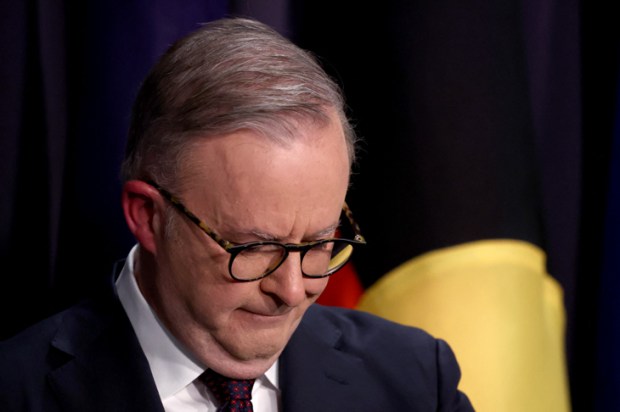
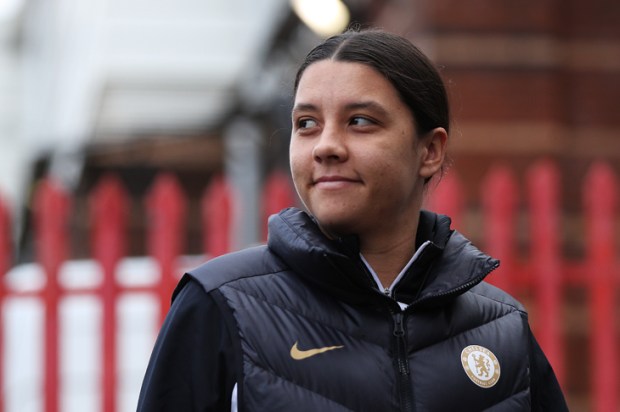
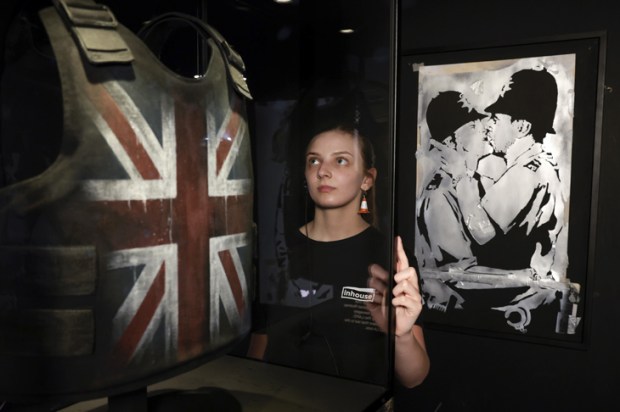
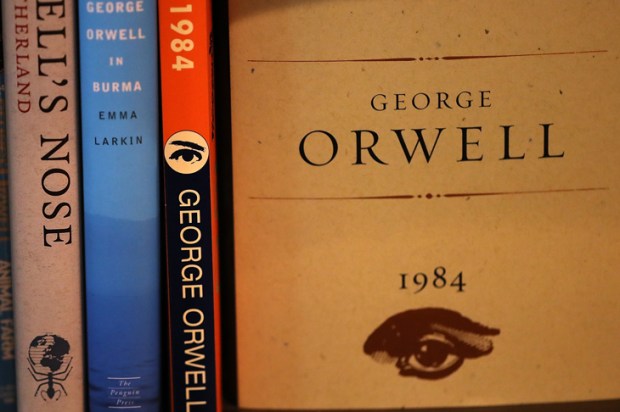
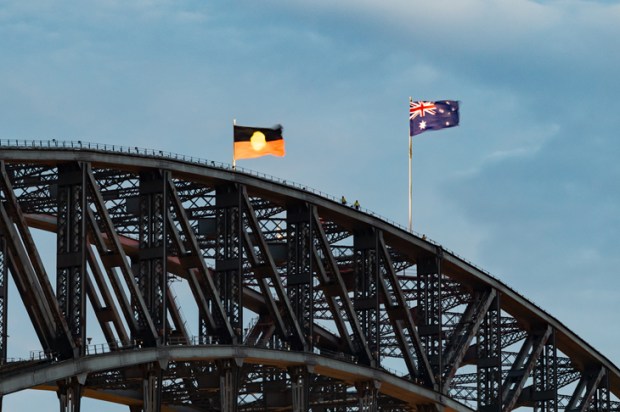






Comments
Don't miss out
Join the conversation with other Spectator Australia readers. Subscribe to leave a comment.
SUBSCRIBEAlready a subscriber? Log in